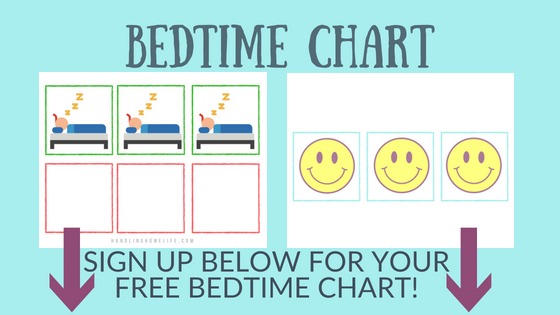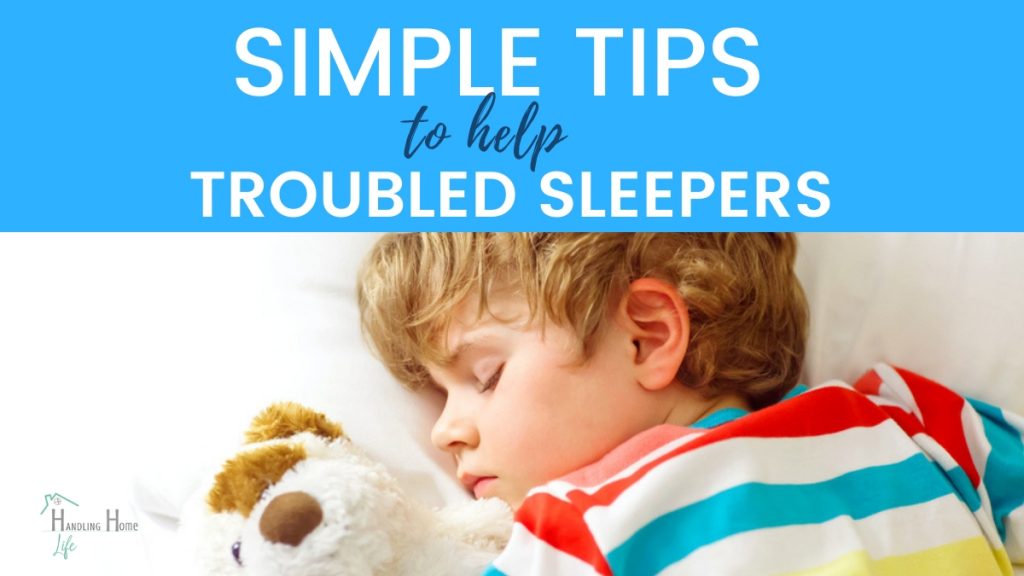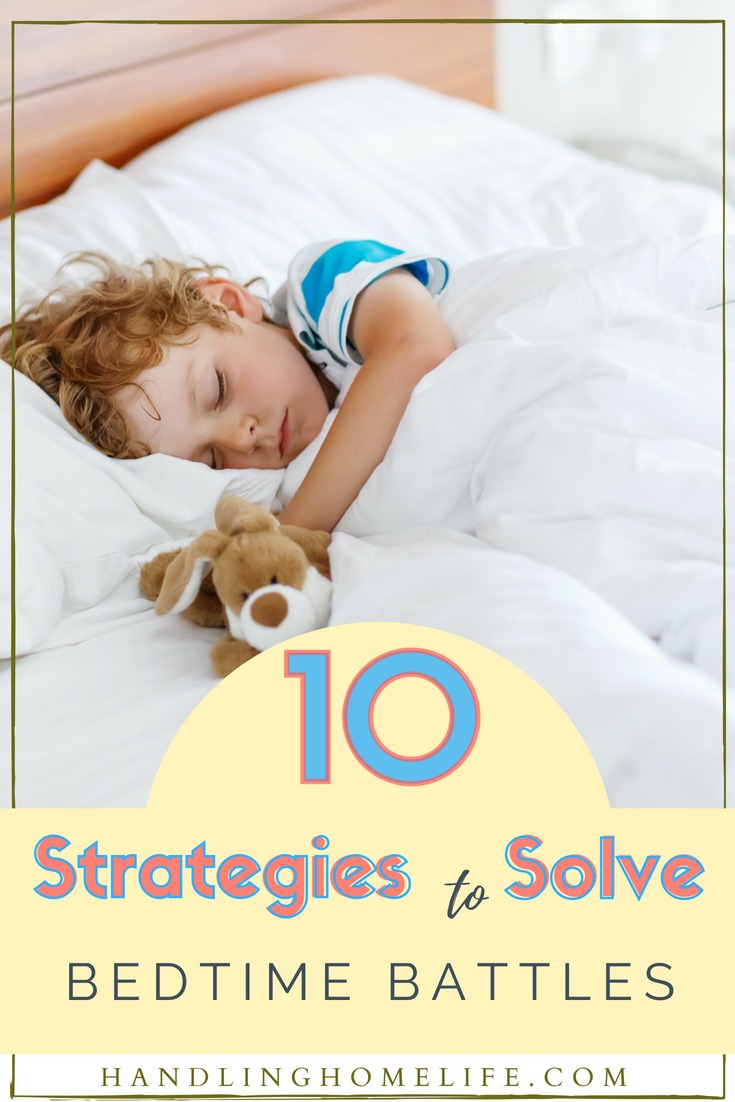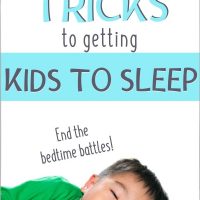Solving Sleep Problems in Children
There is absolutely nothing worse than sleep problems in children. When I think back to 5 years ago when the twins were newborns, I have no idea how I survived on such little sleep. I remember being so tired that I thought I would die!!
Now that they are 5 years old, we are definitely all getting more sleep, but we still have bedtime battles from time to time–and bedtime battles with little kids can be exhausting.
The boys go to sleep fairly easily as long as we keep a consistent bedtime routine.
But staying asleep was the problem.
One twin is the little nocturnal culprit…but he often wakes his brother so then it’s a huge ordeal getting both boys back to sleep.
My mom brain needs to have some shut down time once the boys are asleep, and I have very little patience for them getting out of bed and interrupting grown up time!
This post may contain affiliate links meaning that I may earn a small percentage (at no extra cost to you) if you make a purchase through a link that I share. See full disclosure.
When sleep troubles crop up for my little ones, I’m able to get it handled in 3 nights or less, but it hasn’t always been so easy.
With my 25 year old son and my 15 year old, bedtime battles were not as quickly resolved. Maybe I wasn’t as patient back then after teaching first grade all day. I certainly have more mental energy to come up with parenting solutions now that I’m a stay at home mom.
I’ve adjusted my approach based on the twins’ age and their individual developmental level. While I’ve had a different plan of attack at different stages, there are several things we have done consistently that has contributed to sleep success for the sleep problems in our children.
The importance of sleep
If you have young children still not sleeping through the night, studies indicate that you aren’t alone. Getting my kids to go to bed and sleep through the night isn’t just about me having my grown up time. Research is solid that healthy sleep is as important as nutrition and exercise to your health.
RELATED: 9 Ways to Boost Kids Immune System
Some detective work
When anything becomes disrupted with the twins–tummy trouble, sleep disturbances, abrupt behavior changes, etc, the FIRST thing that I do is analyze nutrition and diet.
The way that I begin my investigation is with a book called:
Cure Your Child With Food by Kelly Dorfman, MS, LND.
I am not exaggerating when I say that the information in this book has been life changing for the twins and I wish I would have had it for my two older sons. It is my most referenced parenting resource–I’ve almost worn the book out!
RELATED: How to Make Easy Smoothies for Kids that are Nutritious
Sleep Wreckers that cause sleep problems in children
In the sleep chapter, author Kelly Dorfman lists some of the culprits of interrupted sleep for children such as reflux, ear problems, overtiredness, and vitamin deficiencies that can contribute to poor sleep.
I can then pair this information along with analyzing the twins’ recent diet. I am always amazed that the solutions are actually so simple!
RELATED: Fight Flu and Boost Immune System with Homemade Elderberry Syrup
Consistency is key
I’m sure that as a parent, you know the importance of a consistent bedtime routine for kids. Consistency (or lack of) will make or break your bedtime routine.
I’ve always been extremely protective of sleep time for my kids. When they were still napping, I made certain they had an uninterrupted block of time to rest. I even hung a sign on the front door threatening anyone who may dare ring that doorbell during nap time! (okay, I didn’t actually threaten;-)
We also try to never go anywhere after 5 pm or the boys would be so wound up I would never get them to go to sleep.
How much sleep?
Experts say that children age 3-6 need 10-12 hours of sleep per day. Getting adequate sleep is critically important because the more tired your child is, the more he will wake up during the night! It can become a crazy making cycle for weary parents!
RELATED: Read How to Make a Kid’s Nighttime Sick Kit, so you will be prepared if the middle of the night wake up is a tummy virus!!
So let’s get this sleep party started…
We talked about consistency so make sure the time you put the kids to bed is the same every night. Our routine right now is:
- Bath
- Brush teeth
- Two bedtime stories
- Last drink of water
- Prayers
Don’t stray from the plan! Don’t give in and read ‘one more story’–Trust me on this!
RELATED: Books for Newborns: How to Boost Baby’s Brain by Reading
Temperature
The environment of the bedroom can greatly enhance the quality and quantity of sleep for all of us.
Recent studies suggest that the optimal sleep temperature is between 60-67 degrees Fahrenheit. Keeping our thermostat turned down at night and using fans keeps the room nice and cool. A cooling pillow can also be helpful.

Lights
If your child’s bedroom has lights from an alarm clock, a computer, lights from a sound machine or maybe a night light, then not only will the quality of their sleep suffer, but their health is at risk as well.
Blue light is especially damaging (the light from ipads, iphones, etc).
Blue light suppresses Melatonin production and causes Cortisol levels to increase.
This creates a biological mess and destroys sleep patterns.
I am a stickler about no screen time after 4 or 5 pm which includes TV. When I bend this rule and allow TV later in the day, sleep suffers.
I wear these blue light blocking glasses when work on the computer after dinner.

Comfort
Climbing into a comfy bed can definitely help kids fall asleep (and stay asleep). These pillows are my favorite because they are made from organic materials, they don’t need a pillowcase, and the best part–they are washable.
Comfortable sheets are a must and there’s nothing better than crawling underneath a soft cozy comforter!

Relax
Most kids have trouble winding down at the end of the day. Their little brains and bodies work so hard to learn new things and it can be tough to shut that off.
Be sure to nix any over stimulating activities by dinner time to avoid sleep problems in children (which includes TV or any other screens).
A warm Epsom salt bath has many benefits and is a great way to begin the bedtime routine. The magnesium and warm water will relax and calm busy muscles.
I usually add a couple of drops of Lavender essential oil to the bath as well to promote calmness. Lavender is quite relaxing and is wonderful to diffuse in the bedroom at night. I use an essential oil diffuser like this so I have the option to not use the light function.
Quiet (but not too quiet)
I don’t think I would EVER be able to fall asleep without white noise and my 15 year old son is the same.
I’ve used several different types of white noise with the twins. When they were babies I played quiet classical music or nature sounds.
Right now we create white noise with our air purifier and fan.
This is the air purifier I use in bedrooms because it makes more of a sound than our other air purifier that I use in the family room.


There are also many different sleep sound machines on the market to choose from that will give you tons of options for your sleepy time noise.

Comfort items
A favorite stuffed animal (we call them loveys) or a beloved blanket can provide comfort for children and help them relax into sleep. The boys have to have their loveys chosen BEFORE we read the bedtime stories and can’t change their mind after they choose.
Weighted blankets are quite popular and the benefits are many. The ‘pressure’ that the blanket provides can have a soothing, calming effect.

Researchers have also found that applying pressure to certain areas of the body releases Serotonin and Melatonin which are required for healthy sleep cycles (among other things).
One of our twins, Beckem, was born with an extremely rare disorder called KAT6A. He has many struggles, one being sensory processing disorder. He craves deep pressure and a weighted blanket can provide that sensory input for him.
Beckem also LOVES snuggle sheets like this!
Bedtime reward chart
My boys love a reward chart and will put forth all of their effort to get to move their smiley face and receive a tiny prize!
I created a very simple chart that hangs on the wall and if the boys stay in bed all night (or whatever the sleep goal might be) then they get to place the smiley face on the picture of the child in bed.
When they were toddlers, they only had to reach their goal one night at a time to be rewarded.
When they were 4 and started waking during the night again, I added three nights to the bedtime chart. So they had to stay in bed 3 nights in a row to earn the prize.
The prize is always something very simple. Usually they get to choose a prize from mommy’s treasure box (filled with random small dollar store items), and extra screen time is a big motivator for both boys.
Helpful tip: I always tell them what the reward will be beforehand.
They love the visual reinforcement just as much as they love the prize they receive. By the time they have stayed in bed three nights in a row, the bedtime problem is solved and we take the chart down.


I print my chart on cardstock and laminate for durability. Then I use velcro to attach the smiley faces.
When nothing is working
It might be time to consider Melatonin. Melatonin is a hormone that is made in our brain and it regulates our sleep cycles. It can be purchased as a supplement and because it’s a supplement and not a medicine, it’s not regulated by the FDA.
Although I felt assured that a high quality Melatonin supplement would be perfectly safe, I didn’t try it until age 4 with Adler. When we had the time change for daylight savings time, it completely disrupted Adler’s sleep routine. I tried every single trick I knew, but nothing was helping.
His lack of sleep was affecting everything and essentially ruining everyone’s days.
I extensively researched Melatonin supplements and decided that the benefits of trying one would be far more beneficial than any possible negative effects the supplement might have.
In addition, I got the okay from our pediatrician as well.
I chose this Melatonin supplement and gave a very small dose (.5 mg) about 30 minutes before bedtime.

It worked the first night.
We only used it for a few nights and his sleep cycle returned to normal. Now, we only use it every now and then when needed. It seemed to be exactly what his body required to get things back in sync.
What are your best sleep hacks for kids? Do you have any secrets for how to get kids to sleep and to stay asleep?
Be sure to follow Handling Home Life on Pinterest and on Facebook!
All content here should be considered as opinion only. Always seek the advice of your own health professional for any questions or concerns you may have regarding your health or the health of others See full disclaimer.













Great tips! My 4 year old and I are in constant bedtime battles but I think I just need to be more strict on routine 😉
Bedtime battles are the worst! A routine most definitely helps my boys…knowing what to expect and creating habits helps us avoid a lot of the drama at bedtime! Good luck!